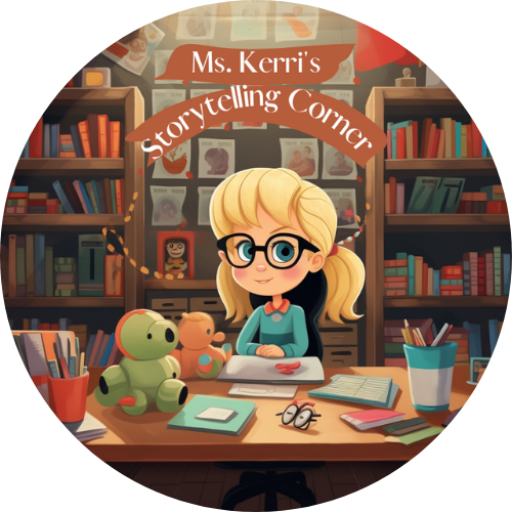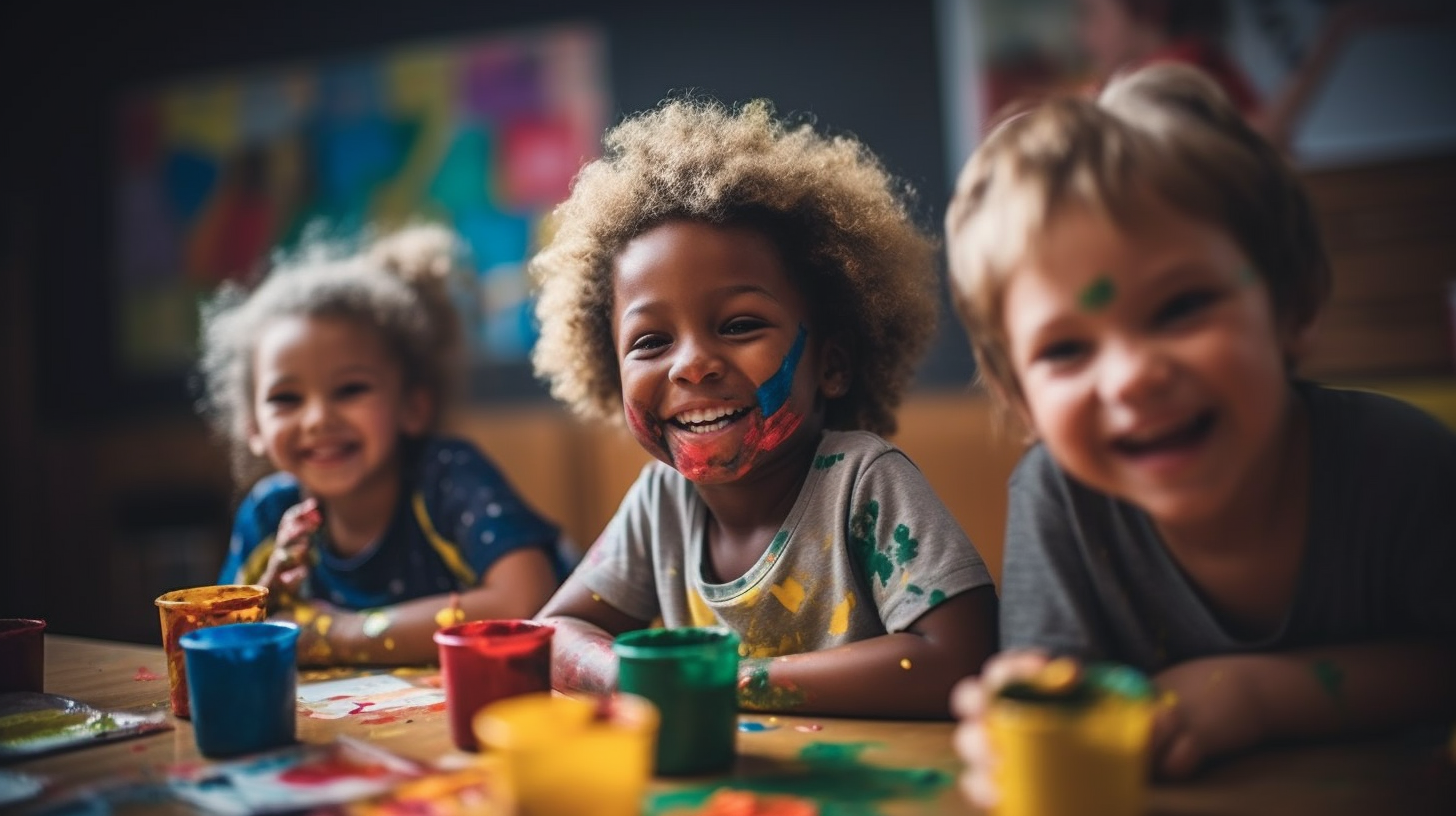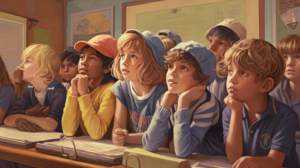Preschool is a critical time for children to develop essential skills that will set the foundation for their future learning. There is often a misconception that creative play and academic skills are mutually exclusive, with some believing that too much emphasis on one can hinder the development of the other. However, in this article, we will debunk these myths and explore the benefits of both creative play and academic skills in preschool learning. By finding the right balance between the two, parents and educators can provide a well-rounded and enriching learning experience for young children.
Key Takeaways
- Creative play and academic skills are not mutually exclusive; they can complement and enhance each other in preschool learning.
- Creative play promotes imagination, problem-solving, and social skills, while academic skills focus on foundational knowledge and cognitive development.
- Integrating creative play and academic skills in preschool can provide a well-rounded learning experience for children.
- Parents and educators should encourage a balanced approach, allowing children to engage in both creative play and academic activities.
- By finding the right balance between creative play and academic skills, children can develop a love for learning while fostering their creativity and critical thinking abilities.
What is Creative Play?

Benefits of Creative Play
Creative play is an essential part of a child’s development. It allows them to explore their imagination, develop problem-solving skills, and enhance their cognitive abilities. Through creative play, children can express themselves freely and learn to think outside the box. It encourages them to take risks, make decisions, and learn from their mistakes. Creativity is a key skill that can benefit children in all areas of their lives, from school to personal relationships.
Types of Creative Play
Creative play can take many forms, allowing children to explore their imagination and express themselves in unique ways. Here are some examples of different types of creative play:
- Artistic Play: This includes activities such as drawing, painting, and sculpting, which allow children to experiment with colors, shapes, and textures.
- Dramatic Play: In this type of play, children engage in pretend play and take on different roles and characters. They can act out scenarios, use props, and create their own stories.
- Constructive Play: This involves building and creating using blocks, Legos, or other construction materials. Children can design and build structures, vehicles, or anything else they can imagine.
- Sensory Play: Sensory play involves engaging the senses, such as touch, sight, and sound. It can include activities like playing with sand, water, or sensory bins filled with different materials.
These different types of creative play provide children with opportunities to develop their imagination, problem-solving skills, and social-emotional development.
What are Academic Skills?
Importance of Academic Skills
Academic skills are essential for a child’s development and future success. These skills provide a strong foundation for learning and enable children to excel in various areas of their education. Teaching phonics and reading skills to children is crucial for their development. Children’s books play a key role in making learning enjoyable and reinforcing phonics concepts, fostering literacy development. Additionally, academic skills such as mathematics and problem-solving are important for developing logical thinking and analytical abilities. These skills help children understand and solve complex problems in different subjects and real-life situations.
Common Academic Skills in Preschool
Preschool is a crucial time for children to develop important academic skills that will set the foundation for their future learning. While creative play is essential for their overall development, it is equally important to introduce them to academic skills that will prepare them for school. Here are some common academic skills that preschoolers can start learning:
- Letter Recognition: Preschoolers can begin to recognize and identify letters of the alphabet, which is a fundamental skill for reading and writing.
- Number Recognition: Introducing numbers and teaching preschoolers to recognize and count them is an important math skill.
- Shape and Color Recognition: Learning to identify and differentiate shapes and colors helps develop visual perception and cognitive skills.
- Fine Motor Skills: Activities that promote fine motor skills, such as cutting, coloring, and writing, help develop hand-eye coordination and dexterity.
Debunking the Myth: Creative Play vs. Academic Skills

The Role of Creative Play in Developing Academic Skills
Creative play is not just about having fun; it also plays a crucial role in developing academic skills in preschoolers. Through creative play, children are able to explore their imagination, think critically, and problem-solve. By engaging in activities such as building with blocks, drawing, or pretend play, children are developing important cognitive skills that are essential for academic success.
One way creative play helps develop academic skills is by fostering language development. When children engage in imaginative play, they often create stories and dialogue, which helps them practice their communication skills. This can lead to improved vocabulary, sentence structure, and overall language proficiency.
In addition to language development, creative play also enhances social-emotional skills. When children engage in pretend play, they learn to take on different roles and perspectives, which helps them develop empathy and understanding of others. These social-emotional skills are important for building positive relationships and navigating social situations.
 https://direct.me/mskerriscorner
https://direct.me/mskerriscorner
Furthermore, creative play promotes problem-solving and critical thinking. When children engage in open-ended play, they are faced with challenges and obstacles that require them to think creatively and come up with solutions. This helps them develop important problem-solving skills that are transferable to academic tasks.
To summarize, creative play is not just a form of entertainment; it is a valuable tool for developing academic skills in preschoolers. By engaging in creative play, children are able to enhance their language development, social-emotional skills, and problem-solving abilities, all of which are essential for academic success.
How Academic Skills Can Enhance Creative Play
Academic skills play a crucial role in enhancing creative play in preschoolers. By developing these skills, children are able to expand their imagination and explore new ideas in their play. Problem-solving is one academic skill that can greatly enhance creative play. When children are faced with challenges during their play, they learn to think critically and come up with innovative solutions. This not only enhances their problem-solving abilities but also encourages them to think outside the box.
 https://direct.me/mskerriscorner
https://direct.me/mskerriscorner
Another academic skill that enhances creative play is language development. Through language, children are able to express their ideas, create stories, and engage in imaginative play. By expanding their vocabulary and improving their communication skills, children can bring their play to life and interact with others in more meaningful ways.
In addition, mathematical skills can also enhance creative play. Concepts such as counting, sorting, and measuring can be incorporated into play activities, allowing children to explore mathematical concepts in a hands-on and engaging way. This not only strengthens their mathematical abilities but also encourages them to think logically and analytically.
To further enhance creative play through academic skills, parents and educators can:
- Provide open-ended materials and toys that encourage problem-solving and creativity.
- Incorporate language-rich activities, such as storytelling and role-playing, into playtime.
- Integrate mathematical concepts into play activities, such as counting objects or measuring ingredients.
Remember, finding the right balance between creative play and academic skills is key. By incorporating academic skills into playtime, children can develop a strong foundation for future learning while still enjoying the benefits of creative play.
Finding the Right Balance

Integrating Creative Play and Academic Skills
Integrating creative play and academic skills is essential for a well-rounded preschool education. By combining the two, children can develop a range of important abilities that will benefit them in the long run. Creativity and imagination fostered through creative play can enhance problem-solving skills and critical thinking. At the same time, academic skills such as mathematics and language provide a foundation for future learning.
To effectively integrate creative play and academic skills, educators and parents can take a balanced approach. Here are some strategies to consider:
- Theme-based learning: Choose themes that allow for both creative play and academic exploration. For example, a theme on animals can involve creating animal masks while also learning about different species and their habitats.
- Hands-on activities: Incorporate hands-on activities that encourage creativity and academic learning. Building structures with blocks, for instance, can promote spatial awareness and engineering concepts.
- Open-ended questions: Ask open-ended questions during creative play to stimulate critical thinking. For example, while playing with building blocks, ask children how they can make their structure taller or more stable.
- Collaborative projects: Encourage collaborative projects that combine creative play and academic skills. This can involve group art projects that incorporate elements of math or science.
Remember, the goal is not to prioritize one over the other, but to find a balance that allows children to develop both their creative and academic abilities.
Tips for Parents and Educators
Finding the right balance between creative play and academic skills is key to fostering holistic development in preschoolers. Here are some tips for parents and educators to create a well-rounded learning experience:
- Encourage a mix of structured and unstructured playtime. While academic skills are important, allowing children to engage in creative play helps develop their imagination, problem-solving abilities, and social skills.
- Provide a variety of materials and resources for play. This can include art supplies, building blocks, pretend play props, and nature exploration tools. By offering diverse options, children can explore different interests and develop a range of skills.
- Incorporate academic concepts into play activities. For example, counting objects during a treasure hunt or using letters and words in a pretend restaurant. This way, children can learn academic skills in a fun and interactive way.
- Foster collaboration and communication. Encourage children to work together on projects, share ideas, and express their thoughts. This helps develop important social and emotional skills alongside academic learning.
- Limit screen time and prioritize hands-on activities. While technology can be a valuable learning tool, it’s important to find a balance. Ensure age-appropriate and high-quality digital content, and guide children in using technology responsibly.
- Celebrate and appreciate the uniqueness of each child. Every child has their own strengths and interests. By recognizing and nurturing their individual talents, parents and educators can support their overall development.
Remember, finding the right balance between creative play and academic skills is not about choosing one over the other, but rather integrating them to create a well-rounded learning experience.
Finding the Right Balance is crucial in today’s fast-paced world. With so many demands and responsibilities, it can be challenging to juggle everything and maintain a sense of equilibrium. At Ms. Kerri’s Story Telling Corner, we understand the importance of finding balance in our lives. Our website offers a wide range of stories and resources that can help you find that perfect harmony. Whether you’re looking for inspiration, relaxation, or simply a moment of escape, our stories will transport you to a world of imagination and wonder. Visit our website today and embark on a journey of self-discovery and balance.
In Conclusion
In conclusion, the debate between creative play and academic skills in preschool learning is a false dichotomy. Both creative play and academic skills are essential for a well-rounded education. While creative play fosters imagination, problem-solving, and social skills, academic skills provide a foundation for future learning. Preschoolers benefit from a balanced approach that incorporates both types of activities. So, let’s debunk the myths and embrace the power of playful learning in early childhood education!
Frequently Asked Questions
Is creative play important for preschoolers?
Yes, creative play is crucial for preschoolers as it helps develop their imagination, problem-solving skills, and social-emotional development.
What are the benefits of academic skills in preschool?
Academic skills in preschool lay the foundation for future learning, promote cognitive development, and prepare children for formal schooling.
Can creative play and academic skills be integrated?
Absolutely! Creative play and academic skills are not mutually exclusive. They can be integrated to create a well-rounded learning experience for preschoolers.
How can parents encourage creative play at home?
Parents can encourage creative play at home by providing open-ended materials, allowing unstructured playtime, and participating in imaginative activities with their child.
What are some common academic skills in preschool?
Common academic skills in preschool include letter recognition, number sense, early literacy, problem-solving, and fine motor skills.
How can academic skills enhance creative play?
Academic skills provide a foundation for creative play by expanding a child’s knowledge base, vocabulary, and ability to express ideas through various mediums.

Ms. Kerri’s Corner provides a exciting virtual space for preschool learning. Through a variety of engaging activities, she exposes young minds to early math, literacy, science and social-emotional skills in a developmentally appropriate way. Centers for blocks, art, books and music allow children to explore hands-on learning at their own pace. Guided lessons subtly introduce number sense, letter sounds and narrative thinking. Careful observation gives insight into each child’s progress across domains. Viewers are also invited to participate, reinforcing that their ideas are valued. By making learning fun yet purposeful, Ms. Kerri lays the groundwork for future academic success while fostering creativity and imagination. Her program offers preschoolers valuable screen-based learning experiences.





